Wesleyan’s Year in Review 2023
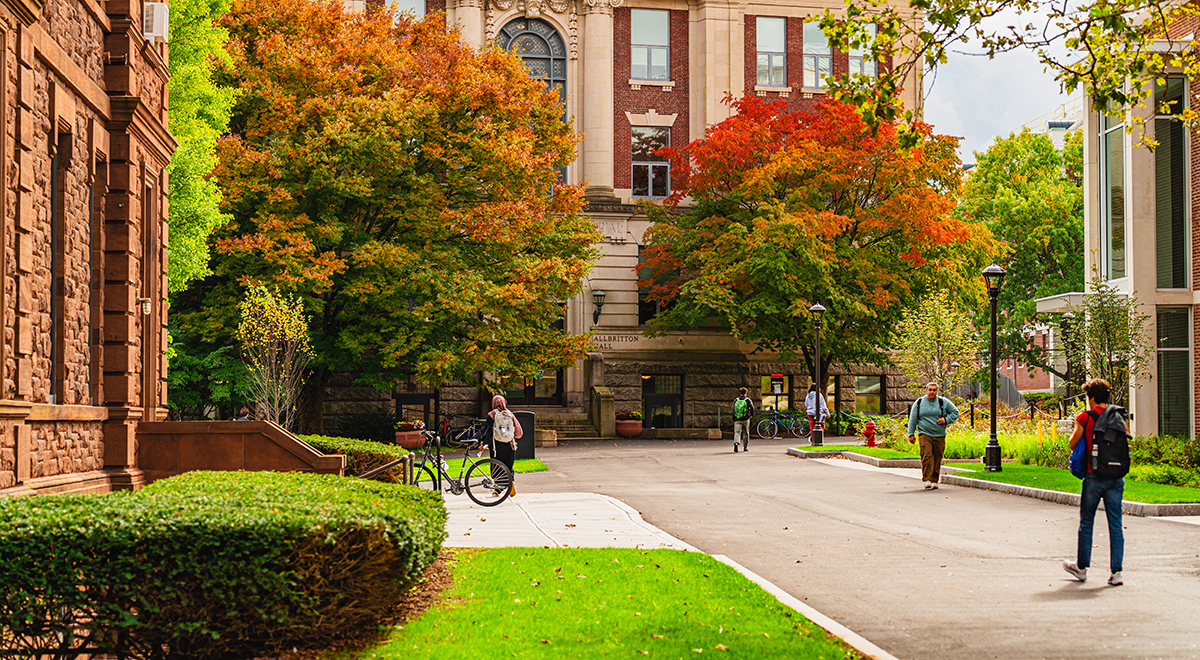
It has been a consequential year at Wesleyan. The University announced the end of legacy admissions and loans, policy changes aimed at improving the access and affordability of its liberal arts education. It also launched the largest fundraising initiative in school history.
While Wesleyan was focused on its mission to provide a diverse group of students with an expansive and broad education, its students continued to learn and create and faculty continued to make significant contributions in their fields of study. Throughout the year, the Wesleyan Connection has documented this creative and compassionate community hungry to have an impact on the world.
Here are some of the stories that encapsulate this year at Wesleyan:
January
Assistant Professor of Chemistry Alison O’Neil published research that drew a direct parallel between a pesticide, cis-chlorade, commonly used from the late 1940s through the 1970s and instances of amyotrophic lateral sclerosis (ALS). The disease, commonly referred to as Lou Gehrig’s disease after baseball’s first Iron Man who was forced to retire from it in the 1930s, is an incurable neurodegenerative disease characterized by the death of the upper and lower motor neurons.
February
Wesleyan welcomed two University chaplains to campus. Shaykh Jamir Meah and Rev. Tracy Mehr-Muska joined the Office of Religious and Spiritual Life. Rabbi David Leipziger Teva said, “We want to make sure that there is a support system for students’ religious and spiritual lives. But also, one of the things we are thinking about is how to reach the part of campus that doesn’t identify with a specific religious tradition.”
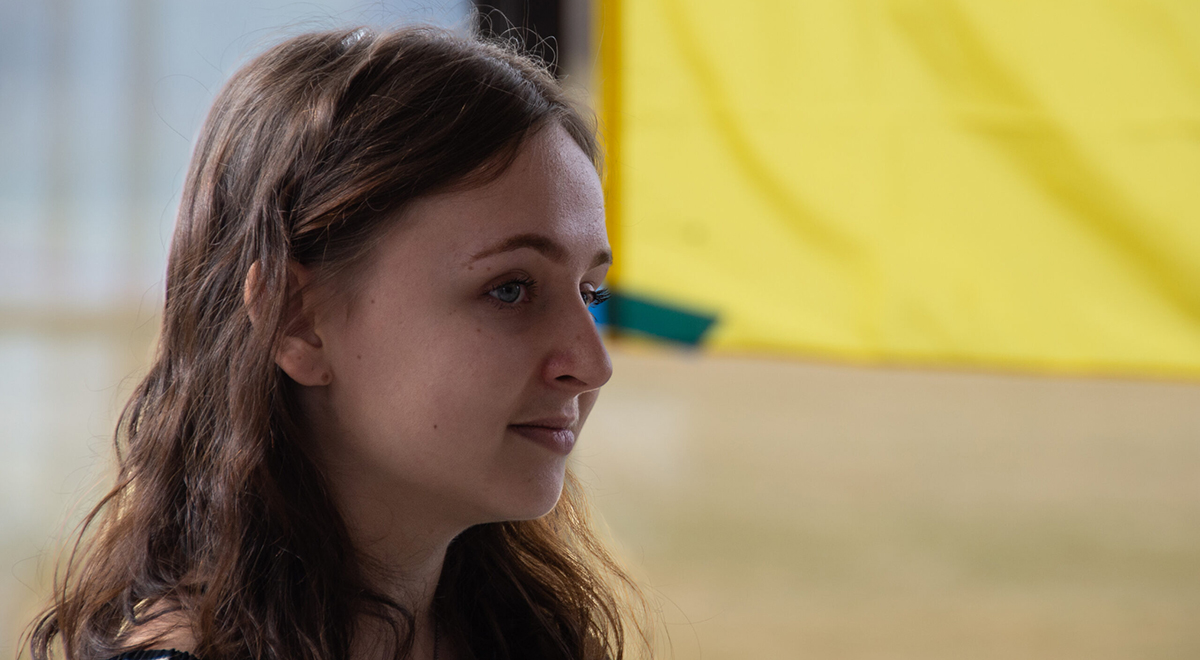
Students and faculty organized a gathering on Feb. 24 to mark the one-year point in the War in Ukraine, serving as a space for those affected to come together to reflect on the strife and tragedy felt by the war’s destruction.
March
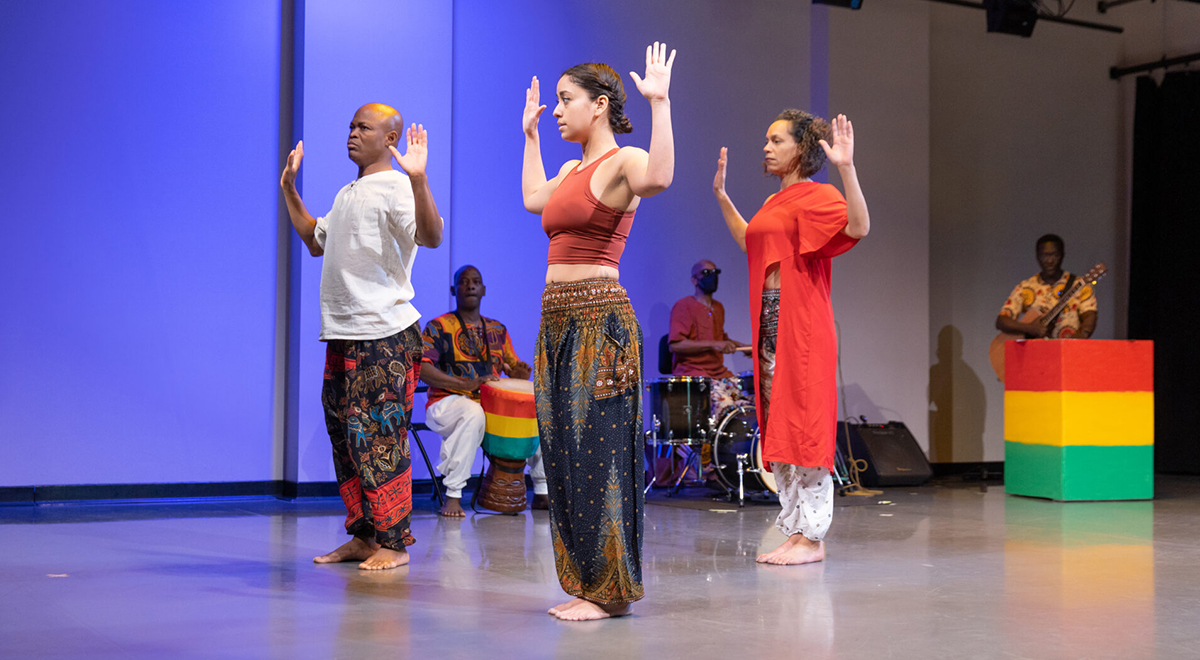
Wesleyan’s Embodying Antiracism Initiative Fellows shared some of their work at a series of intimate and informal salons—mini-festivals of arts, ideas, activations, and community building.
April
Data experts from across the tech community assembled at the Shasha Seminar for Human Concerns from March 31 to April 1, with the goal of creating a roadmap to better universal data privacy, according to event organizer Sebastian Zimmeck, assistant professor of computer science.
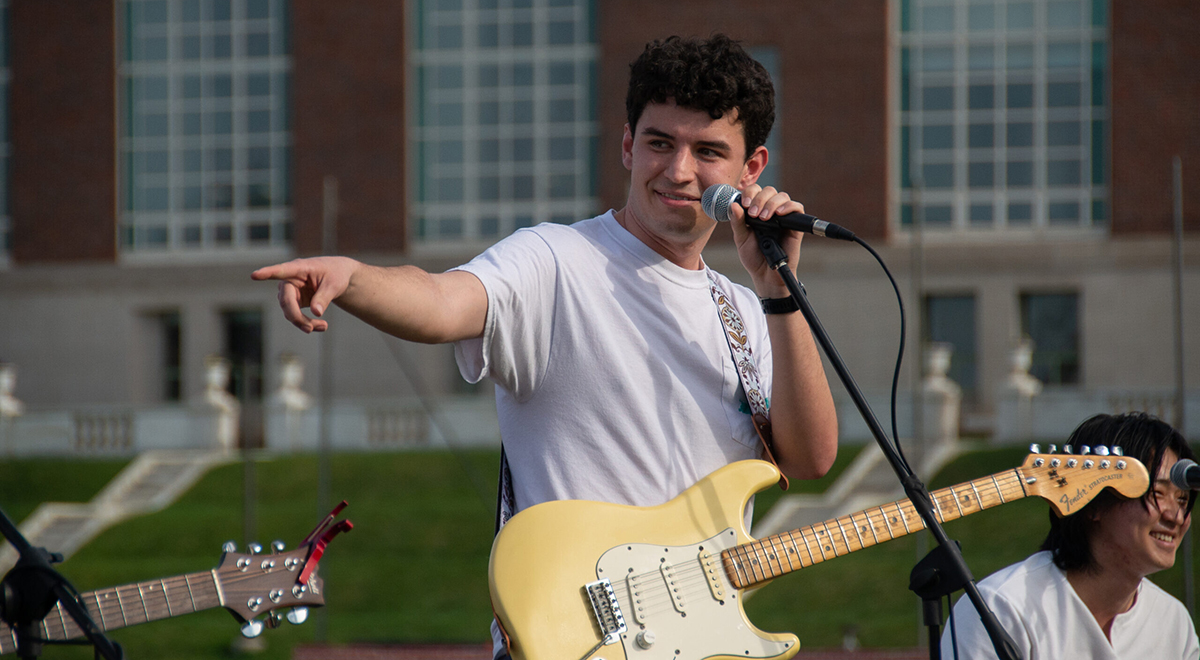
Prospective students flocked to campus for the annual WesFest celebration to learn more about what Wesleyan has to offer them through talks, panel discussions, open houses, and tours. “I invite you to check biases or pre-conceived notions at the door, to explore, to experience, to expand your horizon,” Amin Abdul-Malik Gonzalez ’96, Vice President and Dean of Admission and Financial Aid, said. “To challenge yourself to find the best fit, not just for the next year, or even the next four years, but to challenge yourself to find the community that you want to belong to and be a member of for the rest of your life.”
Scholar, critic, and contributing writer for The New Yorker Merve Emre was named Director of the Shapiro Center for Creative Writing and Criticism.
May
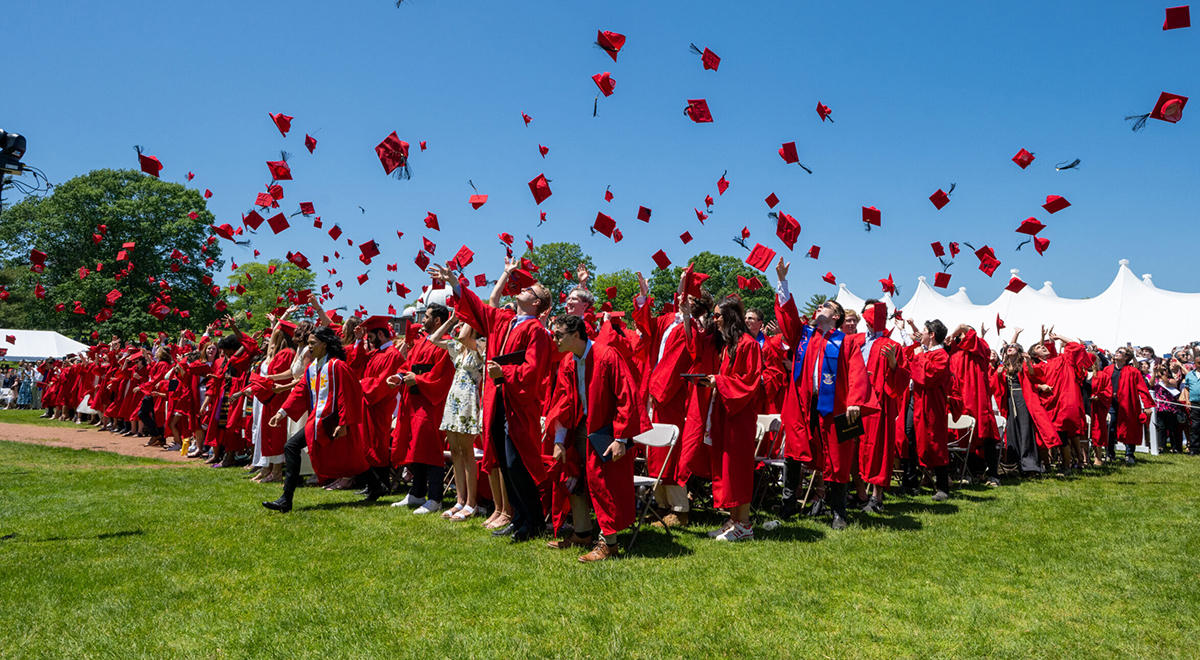
Wesleyan capped off the spring semester in celebration, with the 50th anniversary of the Class of 1973 on May 27 and the 191st Commencement Ceremony on May 28. The University awarded honorary degrees to Pulitzer Prize-winning historian Annette Gordon-Reed, who delivered the Commencement address; Jennifer Finney Boylan ’80, award-winning author, professor, and transgender activist; Larry McHugh, recently retired president of the Middlesex County Chamber of Commerce and longstanding community leader; and Donna S. Morea ’76, P’06, an internationally recognized technology executive and Wesleyan University Board Chair Emerita.
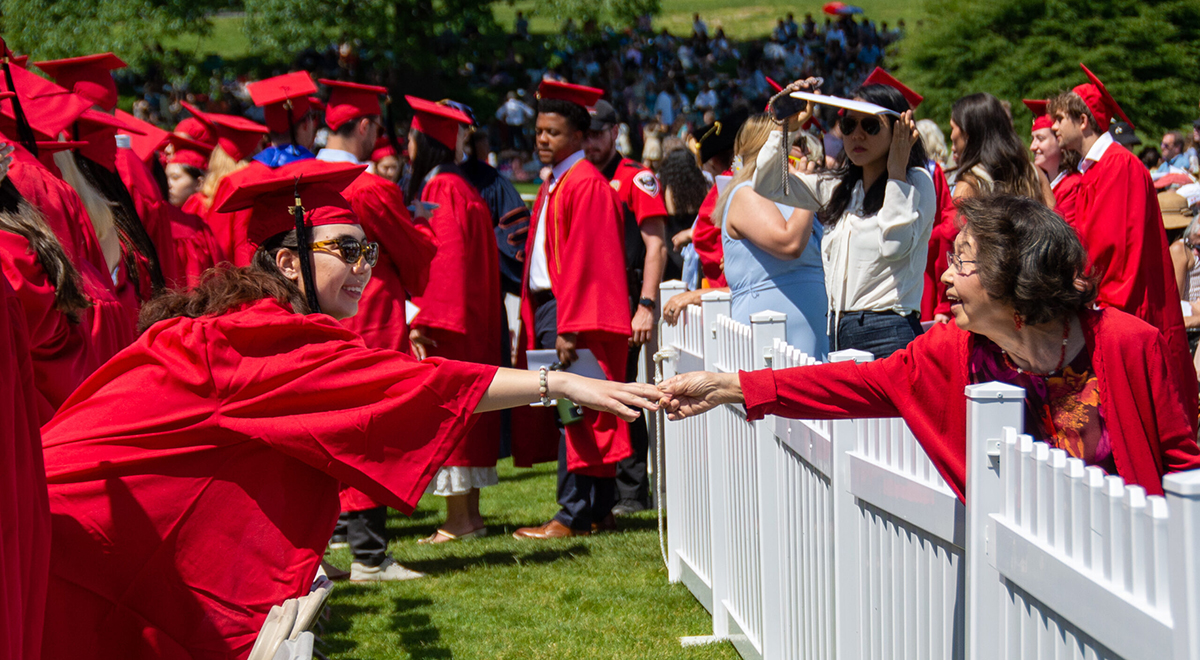
June
The University was awarded Gold status by the Association for the Advancement of Sustainability in Higher Education’s Sustainability Tracking, Assessment & Rating System (AASHE STARS), a self-reporting framework for colleges and universities to measure their sustainability performance.
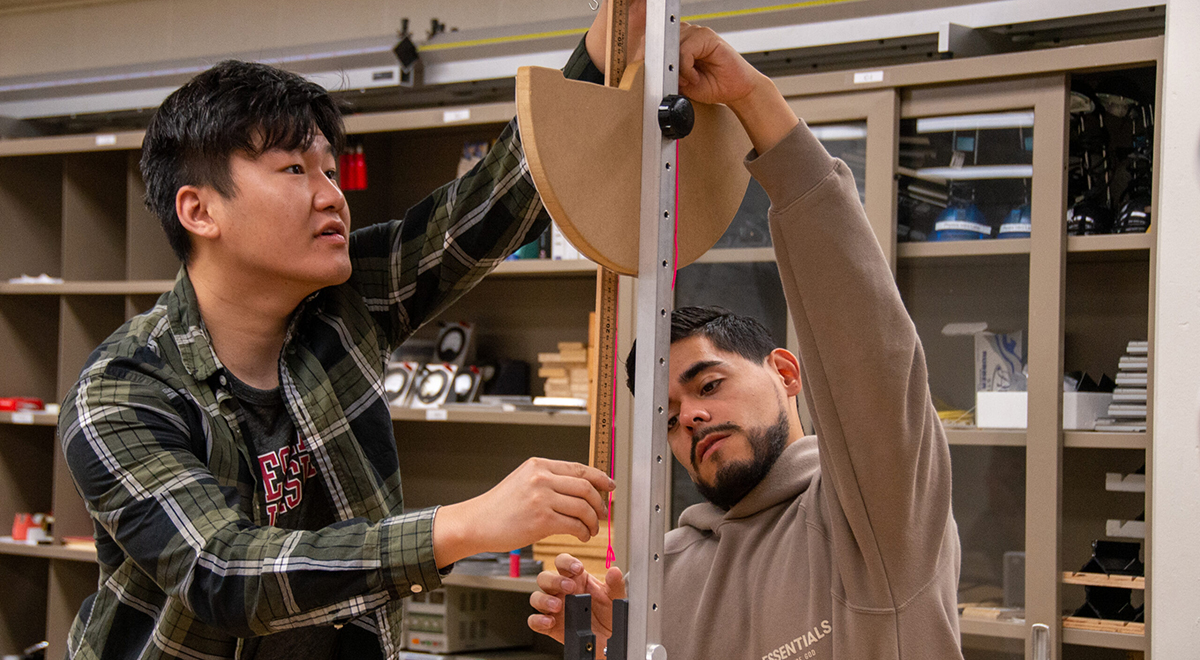
Wesleyan welcomed 14 active and former military veterans to campus in a new partnership with the Warrior Scholar Project. The veterans took on a week-long STEM bootcamp with courses on topics like physics, trigonometry, coding, and how to be successful in a college setting.
“Recognizing WSP’s impressive impact and how veterans enrich our dynamically diverse educational community, Wesleyan was eager to both become a WSP partner and host a STEM bootcamp on campus,” Amin Abdul-Malik Gonzalez, Vice President & Dean of Admission and Financial Aid, said.
July
On July 19, Wesleyan announced it was ending admission preference for the children of alumni following the Supreme Court decision to end affirmative action. The decision received widespread media coverage and other schools followed suit in subsequent months.
“By cultivating free speech, mutual respect, and values of inclusion, we seek to foster a sense of belonging for everyone on campus,” President Michael S. Roth ’78 said in the announcement. “By recruiting students, faculty and staff with diverse life experiences, attributes, and points of view, we continue to build a diverse, energetic learning environment comprised of people who think critically and creatively and who value independence of mind and generosity of spirit.
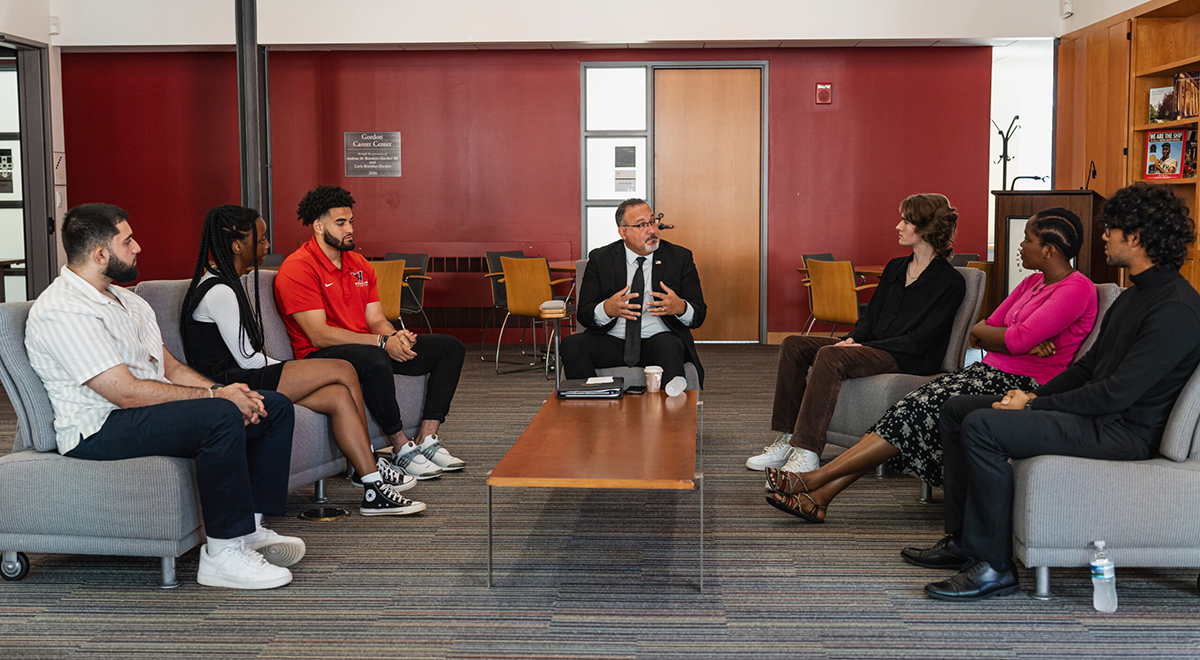
U.S. Secretary of Education Miguel Cardona visited Wesleyan a short time later for a roundtable discussion with first-generation students on the Biden-Harris Administration’s efforts to advance diversity and opportunity in higher education.
“Each one of these students here today told me that one of the things they love about Wesleyan is learning in an environment that’s diverse—people from different countries, different states, different backgrounds,” Cardona said at a press conference following the roundtable. “That leads to better solutions. That leads to a stronger sense of empathy and looking at different perspectives. That’s what we need more of in this country. I am proud to be here, and proud of the leaders at Wesleyan, and I look forward to other leaders across the country following what they are doing here.”
August
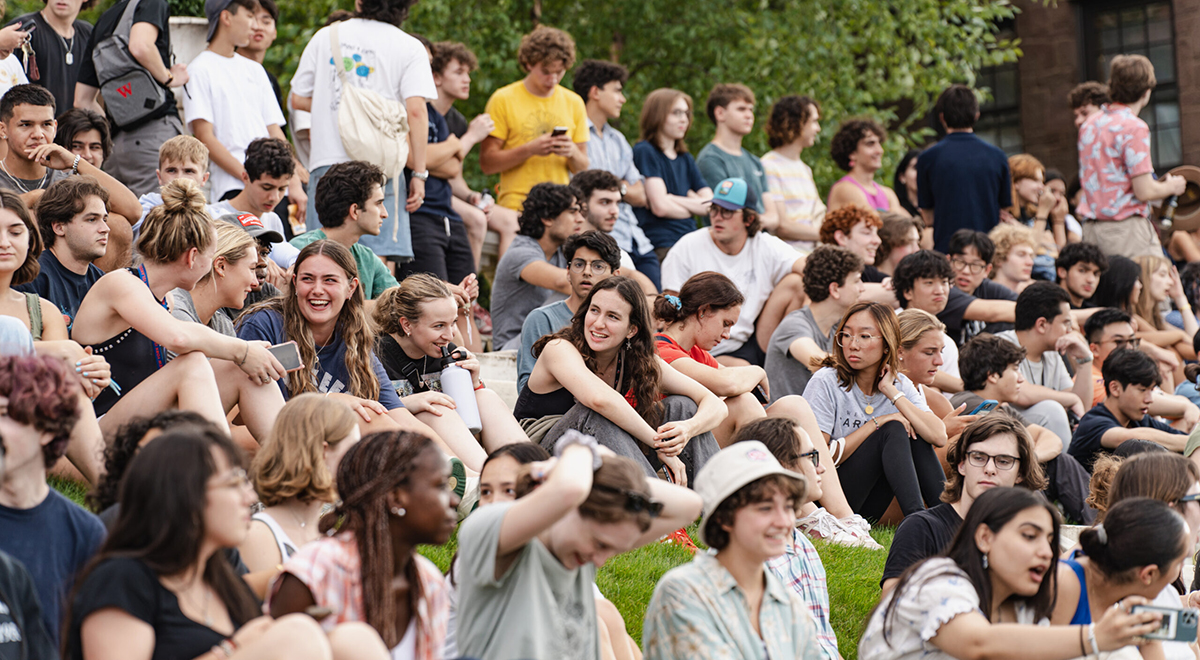
The Class of 2027 arrived at Wesleyan on Aug. 30 with an open-mind, and open trunks as they shifted their belongings to the place where they belong. The 785-student class is widely diverse, as 43 percent of the class are students of color, 16 percent speak English as a second language, and five percent identify as non-binary. There are also more first-generation, low-income students in the class than children of alumni.
September
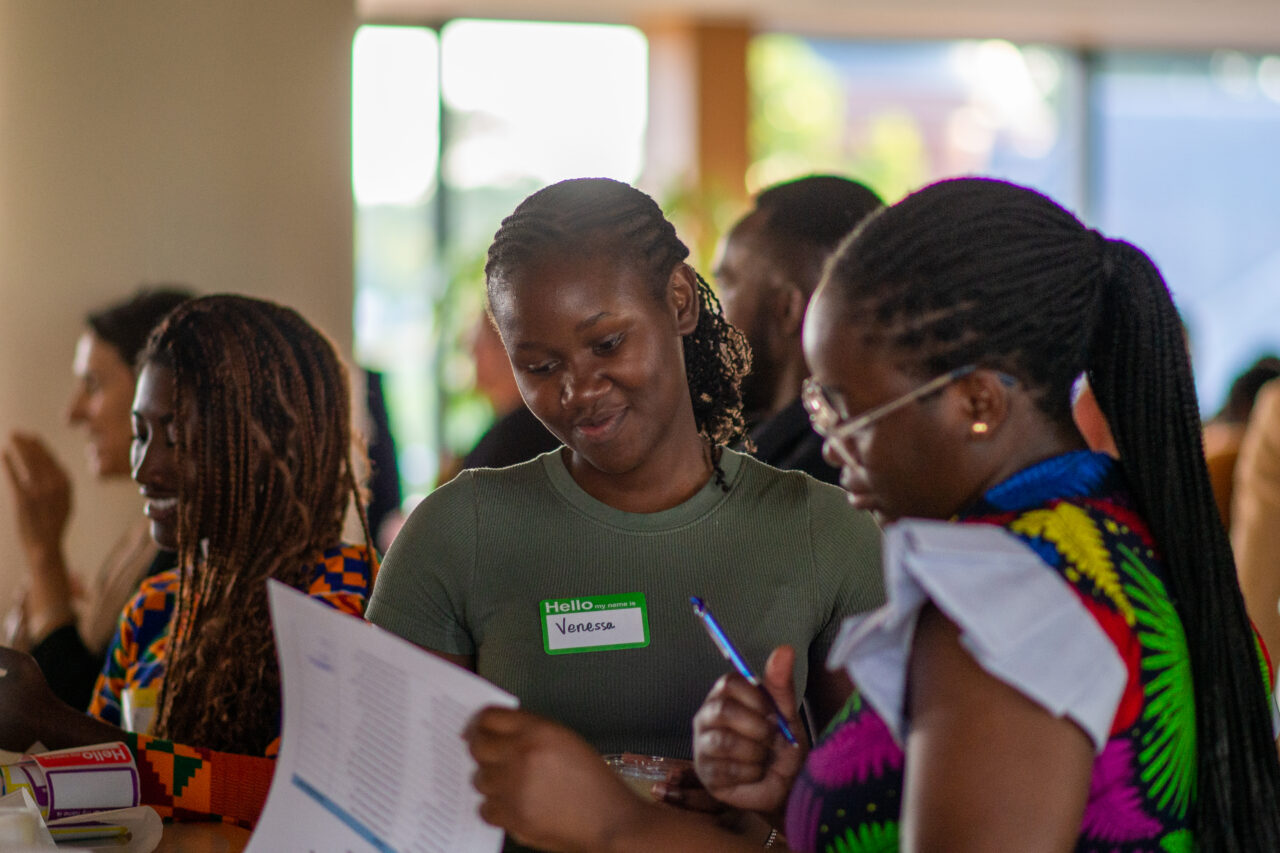
Within the new class arriving at Wesleyan there were an exceptional 13 students participating in the inaugural African Scholars Program. The program, which is another initiative to further access to Wesleyan’s education, will bring students from Africa to the University on a full scholarship. The students were welcomed at a dinner on Sept. 7.
The University announced it would no longer offer loans as a part of its financial aid packages in an effort to make a Wesleyan education more affordable, starting in the Fall of 2024. “We believe it is important to build a diverse, energetic learning environment comprised of people who think critically and creatively and who value independence of mind and generosity of spirit,” said Amin Abdul-Malik Gonzalez ’96, vice president and dean of admission and financial aid.
October
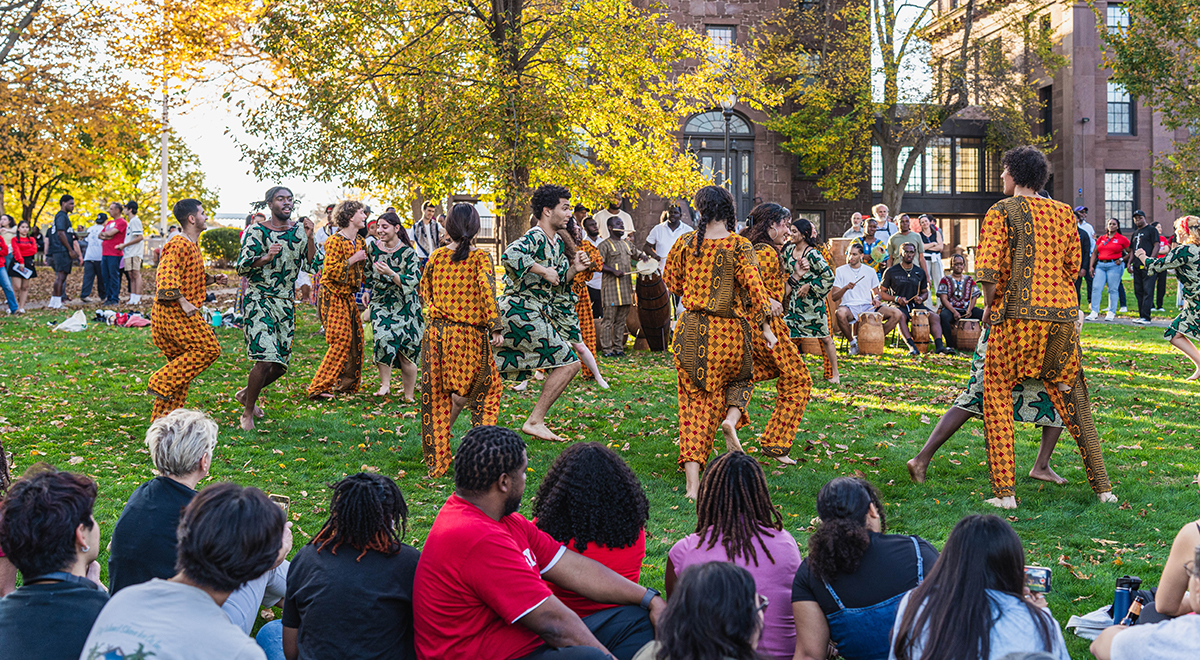
Wesleyan announced a historic $600 million fundraising initiative at Homecoming and Family Weekend. “What Wesleyan has to offer its students, its alumni, its faculty and staff, the Middletown community, and the world is more important than ever,” Roth said at the announcement. “This is what we need now. We don’t need more social media posts. We don’t need more violence. We don’t need more screaming. We need more Wesleyan.”
November
The question of artificial intelligence was on the docket at this fall’s Shasha Seminar for Human Concerns, titled “Artificial Intelligence or Artificial Consciousness.” Professor of Art Tula Telfair gathered a group of experts to touch on a range of topics within the scope of AI (Artificial Intelligence), including expanding horizons of awareness and invention and progress; authorship and legacy, bias and discrimination, justice, and sustainability; creativity, identity, and human rights; and policy, economics, and oversight.
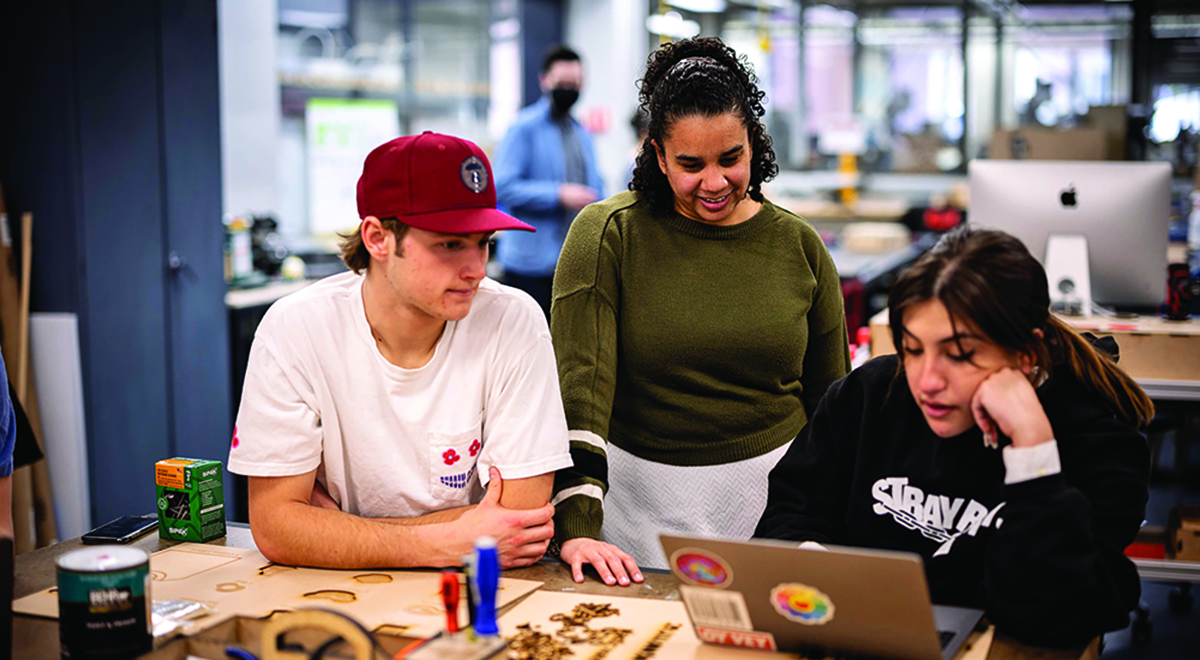
Wesleyan announced the formation of a new college, the College of Design and Engineering Studies (CoDES), that aims to challenge students to think critically about the complex social, technological, cultural, and environmental conditions that surround them.
December
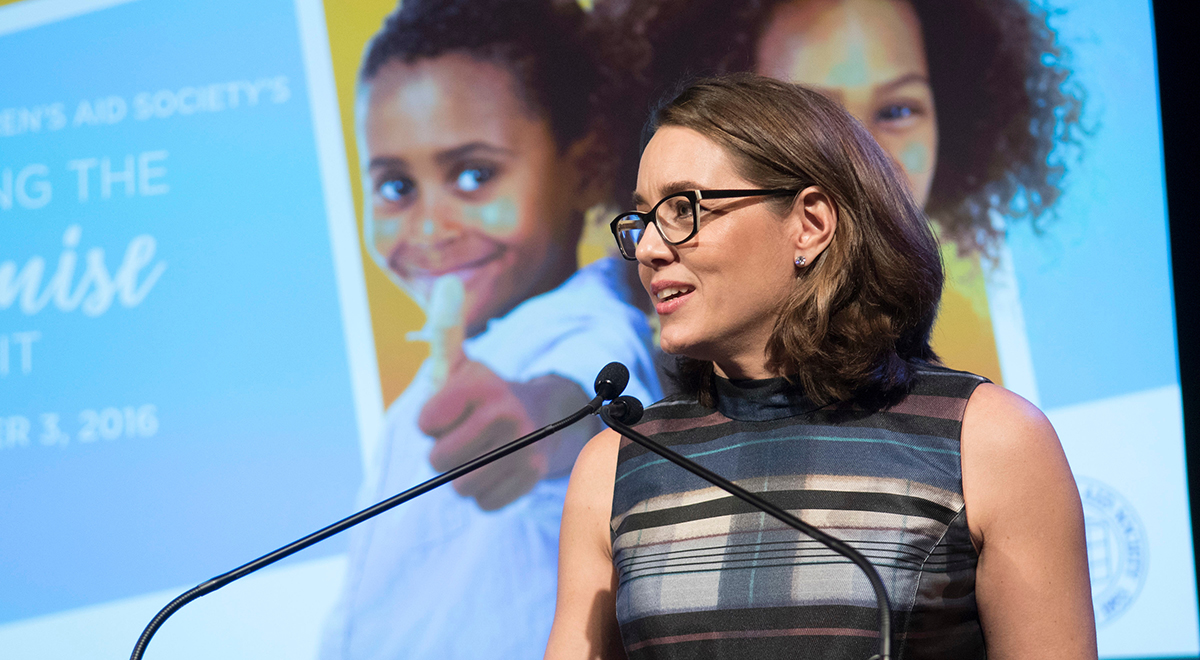
Phoebe C. Boyer ’89, P’19, ’23 was named Wesleyan’s next Chair of the Board, starting her two-year term on July 1, 2024. Boyer has been a member of the Board for 12 years and currently serves as vice chair. “I am honored to assume this responsibility and look forward to continuing to contribute to the Board’s collaborative efforts in support of this extraordinary, and ever important institution,” Boyer said.

